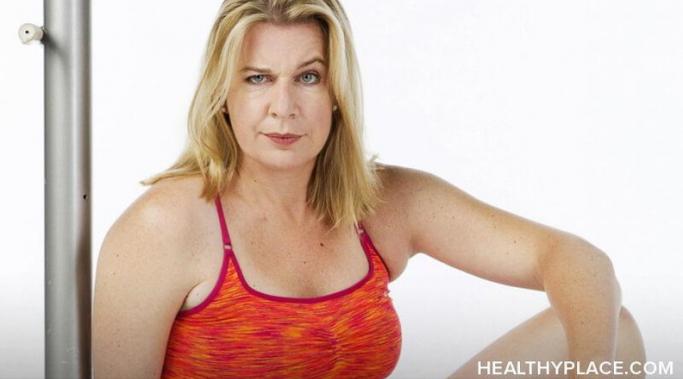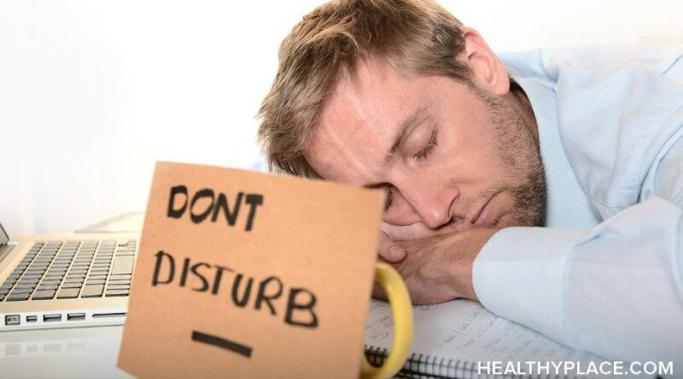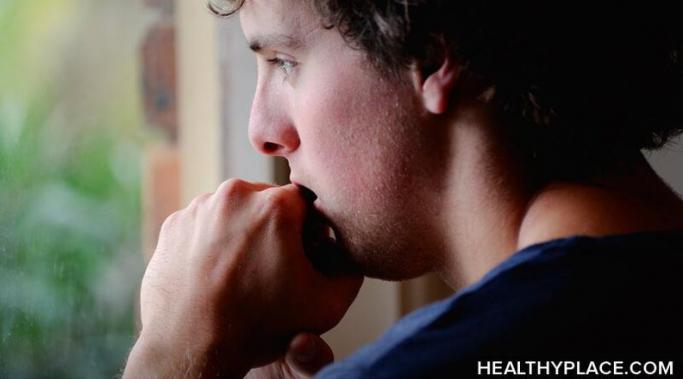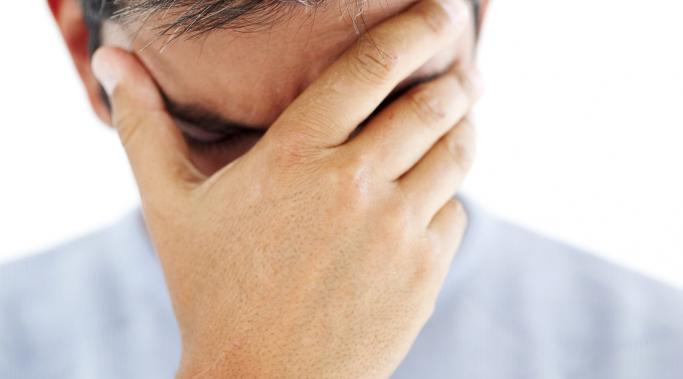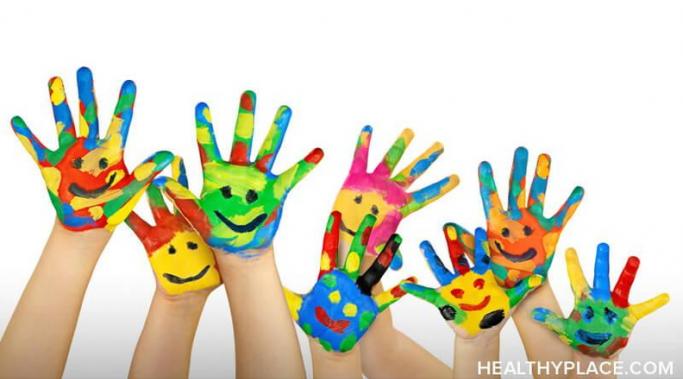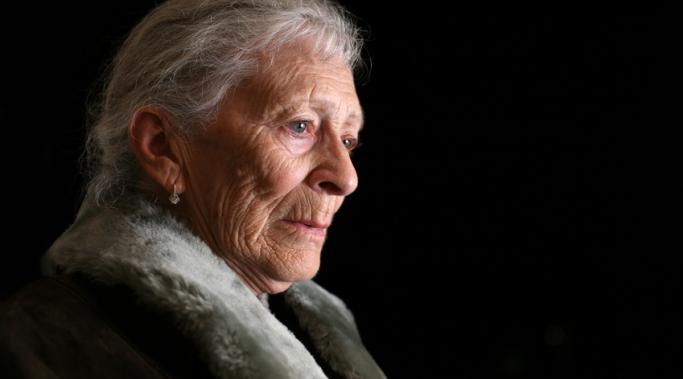People with bipolar disorder, regardless of medication, are, on average, heavier than the average person. This is likely due to sedentary lifestyles and poor dietary choices due, in part, to reduced income. I suspect it’s also because of untreated and undertreated people exhibiting major depression and never getting off the couch (something I know a lot about).
But then, of course, there are the side effects from medication and one of the big ones that effects people drastically is weight gain. Antipsychotics, in particular, can make a person put on a lot of weight and fast. (Tip: the antipsychotic that was newly approved in bipolar disorder, lurasidone, has been shown to be weight-neutral.)
And while many people work very hard to try to lose it, the fact of the matter is, most can’t. Losing weight is something that is tough in the average population let alone in a medicated one. So sometimes, acceptance is the only answer.
Breaking Bipolar
I’m useless in the afternoon. My functional, working hours are extremely limited. And this is thanks to my bipolar disorder. It’s like every character I type and every minute that goes by zaps just a little bit more of me until, by mid-day, there’s nothing left.
This is hugely disheartening. I want to be like everyone else. In fact, I want to be like me a few years ago – me when I worked a full day – like everyone else.
But the fact of the matter is, I’m not like everyone else in this regard. In this regard I’m limited. In this regard I’m disabled.
This morning, a girl from the United States (I’m in Canada) contacted me and said she had taken 40 pills in a suicide attempt and now needed help immediately.
Please don’t do this.
Please don’t treat the internet like it’s 9-1-1. It isn’t.
It just so happened that I was checking the comments on my blog three minutes after this girl posted this comment so I caught it in time. (Help was called.) But I very much could have missed it. It could have taken me hours to get to this comment. I get many comments and emails and sometimes it takes me a long time to get around to reading them, let alone responding. I am, in no way, an emergency service.
Reaching out to someone is always better than reaching out to no one, but please, if you need mental health help, know who to reach out to.
Many of us know a person who has suffered a bad bipolar outcome. Perhaps the person has lost their friends and family because of bipolar. Perhaps the person lost their job because of their bipolar moods. Perhaps the person became so unwell they ended up on the street. Perhaps the person was driven to suicide.
Those are all very scary and worrying outcomes from a mental illness and, the trouble is, they’re real. I can’t take away your fear and worry by telling you that these things don’t happen because that would be a lie. These things do happen, every day.
But that doesn’t mean that there aren’t things you can do to fight the fear and worry that surrounds bipolar disorder.
Mental illness isn't something that only exists in adults, the mental health of kids and teens is crucially important too. Talking to kids about mental illness early is critical.
I deal with suicide a lot in my writings. I’ve talked about people who have just attempted suicide, those left behind by suicide and the family and friends of those who have attempted suicide, among many other subjects. That’s because suicide is a subject that I think is very important. It’s critical to break down the walls of silence that keep people who have contemplated or attempted suicide at arm’s length from everyone else. Thinking about suicide or attempting suicide doesn’t mean there’s anything wrong with you; it just means that you have sought a way out of an extraordinary amount of pain that wasn’t the best way.
But the way in which suicide is written about matters because of a phenomenon known as suicide contagion. This is the act of copycat suicides and believe it or not, it is a real problem. The way a suicide is reported in the media actually affects the number of people who attempt suicide.
So if you plan on talking about suicide – and I encourage you to do so – think about these guidelines on how to do it.
I’ve been working on coming up with mission and vision statements for a charity I work with, and one of the things that a fellow board member said was that we want to end self-discrimination. I thought this was quite brilliant, and, of course, quite true. One of the things people with a mental illness face isn’t just discrimination from others but discrimination and stigma from themselves. And if we want to fight discrimination and stigma in the world, this begins by looking in the mirror.
Being sick, I think with anything, can be extremely isolating. Being sick, you’re not “like everyone else.” Be it cancer, HIV, diabetes or bipolar disorder, there is a moment when you realize that you’re different and that difference is isolating.
This is a form of internal isolation. But, of course, isolation can be external every bit as much as it can be internal. And sadly, most people with bipolar disorder experience heaps of both.
Many people with bipolar disorder hold down jobs, just like everyone else. We get up, swear in traffic, survive on coffee and rant about our bosses behind their backs.
But people with bipolar disorder or another mental illness have special challenges when it comes to work. We’re sick more often, we need time off for medical appointments and stress affects us more than your average person. Here are a few tips on handling work and bipolar disorder.
Recently I was turned on to one of the coolest apps I’ve seen – it’s an app for your smartphone that tracks your sleep. This magical piece of software records your sleep, the sleep phases and any sounds, as well as does a myriad of other things.
This is incredibly useful to a person with a mental illness. People with mental illnesses like depression and bipolar disorder are known to have problems with their sleep and this application can help you pinpoint what’s going on.
